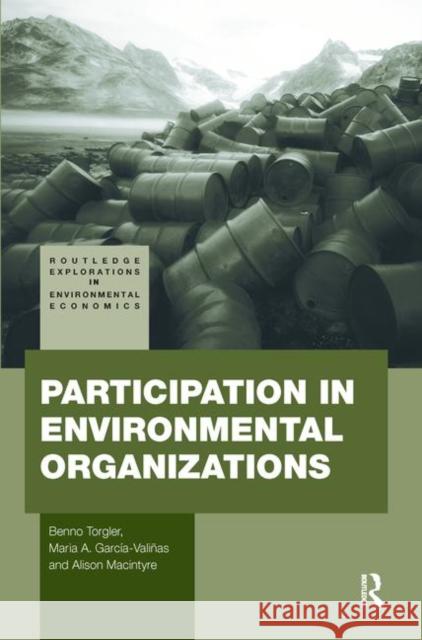Participation in Environmental Organizations » książka
Participation in Environmental Organizations
ISBN-13: 9780415446310 / Angielski / Twarda / 2010 / 256 str.
Participation in Environmental Organizations
ISBN-13: 9780415446310 / Angielski / Twarda / 2010 / 256 str.
(netto: 758,48 VAT: 5%)
Najniższa cena z 30 dni: 705,23
ok. 16-18 dni roboczych.
Darmowa dostawa!
For decades, social scientists have searched for factors that shape pro-environmental
behaviour. However, only a few studies have investigated the causes and
consequences of participation in environmental organizations. This book fills the gap by analysing in detail the determinants of environmental participation and its consequences in different parts of the world. Benno Torgler, Maria A. Garcia-Valinas and Alison Macintyre seek the answer to several questions regarding who is working towards positive outcomes for our environment, what sort of social and institutional context will assist voluntary participation, what sort of attitudes are related to positive environmental behavior, and which countries are active on the intergovernmental stage. By focusing on voluntary participation in environmental organizations, we are able to determine the level of willingness to work towards a solution for environmental problems. This allows an insight into the motivations and attitudes of individuals and nations and how these factors can affect environmental cooperation. Participation in Environmental Organizations sheds light on who is liable to participate and will help to see whose priorities and values are forwarded through voluntary activities and to what extent voluntary participation can become representative. Thus, the book provides a unique examination of citizens' willingness to participate in environmental organizations. The book will be of interest to Economics students and researchers alike who seek a deeper understanding of the theory and practice of environmental participation.
For decades, social scientists have searched for factors that shape pro-environmental behaviour. However, only a few studies have investigated the causes and consequences of participation in environmental organizations. The main aim of this project is to fill this gap by analyzing in detail the determinants of environmental participation and its consequences in different parts of the world.
The authors shed light on who is liable to participate and will help to see whose priorities and values are forwarded through voluntary activities and to what extent voluntary participation can become representative. Thus, the book provides a unique examination of citizens’ willingness to participate in environmental organizations.











